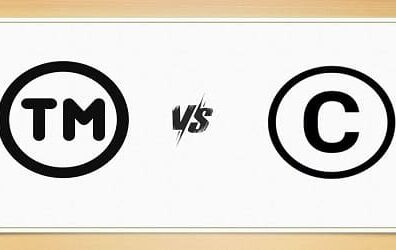Memorandum Of Association (Moa)- A Comprehensive Guide

Introduction to Memorandum of Association
A Memorandum of Association is a legal document that explains the reason for which the company is founded and, as a result, identifies the probable scope of its operations that cannot be exceeded. It both defines and limits the company’s powers. Anything done beyond these powers will be ultra vires (beyond the company’s powers) and hence null and void. The Memorandum is one of the essential documents that must be submitted with the application form for company incorporation.
What is Memorandum of Association under Companies Act, 2013
According to Section 2(56) of the Act “memorandum” means the memorandum of association of a company as originally framed and altered, from time to time, in pursuance of any previous company law or this Act. The Memorandum informs shareholders, creditors, and others who do business with the company about its powers and the scope of its activities. Memorandum of Association is a public document, and anyone can view the MoA of a company by paying the requisite fees to the Ministry of Corporate Affairs (MCA).
Different Types of Memorandum of Association
Memorandum of Association is an essential document of the company as it defines the scope of its operations. Section 4(6) of the Companies Act, 2013 states that the memorandum of association must be in one of the Forms stated in Tables A, B, C, D, or E of Schedule I to the Act, depending on the type of company requested to be incorporated.
Following are the types of Memorandum of Associations:
- Table A: Companies limited by shares
- Table B: Companies limited by guarantee not having a share capital
- Table C: Companies limited by guarantee having a share capital
- Table D: Unlimited companies not having a share capital
- Table E: Unlimited companies having a share capital
Clauses of Memorandum of Association
A Memorandum of Association contains 6 clauses. Given below are the six clauses:
- Name Clause: The name of the company shall end with “Limited” as its last word in the case of a public company; and “Private Limited” as its last words in the case of a private company. In case of a Government Company as per the exemption under Section 462 of Companies Act, 2013 vide notification dated June 5, 2015 their name need not end with the words “Limited” or “Private Limited”. Also, in case of Section 8 companies the name shall not end with the words “Limited” and “Private Limited”.
- Registered Office Clause: This clause mentions the State in which the registered office of the company will be situated.
- Objects Clause: The object clause specifies the activities that the company is authorized to carry out. It describes the primary business operations that the company will pursue, as well as any matter considered necessary in furtherance thereof.
- Liability Clause: This clause states whether the liability of the members is limited or unlimited. It basically mentions the extent of liability of the company’s members in the event of the winding up.
- Capital Clause: This clause mentions the authorized share capital of the company and the shares subscribed by the members forming the company.
- Association Clause: This clause confirms that the subscribers to the MOA intend to form a company and agree to become members of the company.
Contradiction between Memorandum of Association and Companies Act, 2013
As per section 6 of the Companies Act, 2013 it is to be noted that the Companies Act, 2013 shall override the provisions in the Memorandum and Articles of a company, if the latter contains anything contrary to the provisions in the Act. Hence, it is critical to verify that the Memorandum conforms with the Companies Act as well as any other applicable rules or regulations in the jurisdiction where the business is being formed.
Sample Format of Memorandum of Association
(THE COMPANIES ACT, 2013)
(COMPANY LIMITED BY SHARES)
MEMORANDUM OF ASSOCIATION
OF
NAME OF COMPANY
I. The Name of the Company is:- (Name of Company)
II. The Registered Office of the Company is situated in the State of (Name of State).
III. The objects for which the Company is Established are:-
A. THE OBJECTS TO BE PURSUED BY THE COMPANY ON ITS INCORPORATION ARE:-
- To carry on in India or outside the business of Real Estate Agent and buying, purchasing or otherwise acquire any immovable or movable property of all kinds and description and right, title and interest therein and to carry on the business of renting, letting or other similar arrangements of immovable and moveable properties.
- To promote, buy, acquire, sell, lease. exchange, hire, give on relit, to let, mortgage or otherwise dispose of the lands, industrial Complexes, houses. buildings, farm houses, agricultural lands, and other immovable property of the Company or other immovable property including any share or shares, interest or interests therein and to transact on commission or otherwise business of real estate agents and to apply for purchase through tender or otherwise acquire civil contracts for or in relation to water proofing, sewage, construction, execution, equipment, improvement, management, administrations or control of mechanical and civil works and conveniences and to undertake, execute, dispose or otherwise turn to account the same.
B. MATTERS WHICH ARE NECESSARY FOR FURTHERENCE OF THE OBJECTS SPECIFIED IN CLAUSE 3(A) ARE:
- To purchase, take on lease, or otherwise, acquire any land, building, or other premises which may be deemed essential for the main business of the Company or to construct, either directly or through contractors such building or premises as are essential for the said purpose.
- To establish, operate, or regulate branches or service centers or agencies of the Company at any place in India or outside India for carrying out all or any objects of the company and to discontinue the same.
- To open a bank account(s) and draw, make, accept, discount, endorse, execute, and/or issue, as the case may be, cheques, promissory notes, Bills of Exchange, Bills of Lading, and other negotiable or transferable instruments or securities connected with the business of the Company.
- To receive money on loan and borrow or raise money in such manner as the Company shall think fit, but the Company shall not carry on the business of banking as defined in the Banking Regulation Act, 1949.
- To invest the money of the Company not immediately required, in any securities, shares, investments, properties, movable or immovable, and deal with such money in such manner as may from time to time be determined and hold, sell transfer or otherwise deal with such security, share, investment, property or such other assets.
- To conduct research for the purpose of and with a view to inventing improved techniques in the Management and Operation of Commercial and Industrial undertakings and to advise those connected with such activities.
- To obtain, procure, get, acquire, or otherwise secure rights, privileges, licenses, permits, grants, and other interests from the Government, any Corporation, or any person or persons to improve the business of the Company.
- To adopt such means of making known the services rendered by or at the disposal of the Company by advertising in the press, by circulars, by purchase and exhibition of works of art of interest, by broad-casting, sky-writing, billboards, motion and talkie pictures, publication of books and periodicals, by granting prizes, rewards and donations or by sponsoring tournaments and other contests, conducting exhibitions, shows, seminars or symposia.
- To appoint agents, sub-agents, canvassers, sales representatives, and salesmen for transacting all or any kind of business in any part of India, which the company is authorized to carry on.
- To seek and obtain the opinion, guidance, reports, certificate, and/or services of experts in various Industrial and Commercial matters of technical nature.
- To construct, purchase, take on lease, rent, occupy or otherwise acquire any buildings, gardens, wells, waterways, or similar other constructions for residential purposes for the benefit of the Company’s employees.
- To subscribe for any securities issued by local body and to sell, hold, or by any otherwise deal with the same.
- To enter into a partnership or into any arrangement for sharing or pooling profits, the union of interest, co-operation, joint venture, reciprocal concession or amalgamation, with any other Companies, persons or association of persons carrying on or engaged in or about to carry on or to be engaged in any business or transaction which this Company is authorized to carry on or engage in any business undertaking or transaction capable of being conducted so as to directly or indirectly benefit this Company.
- To amalgamate this Company with any other company having objects altogether or in part similar to those of this Company on such terms and conditions as may be mutually agreed upon subject to the provisions of the Companies Act.
- To acquire and take over either in whole or in part the business of any existing concerns with all its assets and liabilities or with such assets and liabilities as are specified, in so far as the business or part of the business being taken over will be those which this Company is authorized to carry on and to pay for the same either in cash or in shares or partly in cash and partly in shares either in India or outside India.
- To provide for the welfare of the Companies employees and their families by grants of money, pensions, bonuses, provident funds, insurance covering on life or against specific risks and by subscribing for, establishing and maintaining hospitals, nurseries, schools and libraries, facilities for sports and games and such other activities, promoting the welfare of such persons. But the Company shall not make any contribution to any political parties or to any individual or body for political purpose.
- To sell, mortgage, assign, lease, or sub-lease, and in any other manner, deal with or dispose of off the undertaking or properties of the Company or any part thereof, whether movable or immovable, for such consideration as the Company may think fit, and in particular for shares, debentures or securities of any other company having objects altogether or in part similar to those of this Company.
- To apply for, purchase acquire, patents, trademarks, brevets, invention licenses, concessions, protections, rights, privileges, and the like conferring any exclusive or non-exclusive or limited rights house or any secret or other information as to any inventions which may see capable of being used for any of the purposes of the Company or the acquisition of which may seem directly or indirectly of use or benefit to the Company or may appear likely to be advantageous or useful to the Company and to use, exercise, develop or grant licenses, privileges in that respect or otherwise turn to account the property, right or information so acquired and to assist, encourage and spend money in making experiments, tests, improvements of any invention, patent and right which the Company may acquire or purpose to acquire.
- To payout of the funds of the company all costs, charges, and expenses preliminary and incidental to the promotion, formation, establishments, and registration of the company and also to aid peculiarly or otherwise any association, body or movement having for an object the solution or settlement of industrial or labour problems or the promotion of industry or trade.
- To do all such things in any part of the world as may be deemed incidental or conducive to the attainment of the above main objects or any of them.
- To compensate, for loss of office, any Managing Director or Directors or other Officers of the Company within the limitations prescribed under the Companies Act or other statute or rule having the force of law and to make payments and also to grant pensions, allowances, gratuities, bonuses to existing or former employees and officers (including directors)of the Company or their dependents and to make a payment towards insurance for any such purpose to establish, join any funds or scheme or trust with a view to provide pensions or allowances for such persons or other institutions, funds or schemes calculated to benefit such persons.
- To create any reserve funds or any other special funds for the improvement, expansion or maintenance of the Company.
- To undertake financial and commercial obligations, transactions, and operations of all kinds in connection with the business of the Company.
IV. The liability of the member(s) is limited and this liability is limited to the amount unpaid, if any, on the shares held by them.
V. The share capital of the company is Rs 1,00,000 rupees, divided into, 10,000 equity shares of 10 Rupees each, and
VI. We, the several persons, whose names and addresses are subscribed, are desirous of being formed into a company in pursuance of this memorandum of association, and we respectively agree to take the number of shares in the capital of the company set against our respective names:
(ATTACH SUBSCRIPTION SHEET)
Alteration of Memorandum of Association
Businesses frequently encounter the necessity to change and adapt to maintain competitiveness. One integral part of such process involves modifying the Memorandum of Association (MoA) in accordance with the Companies Act, 2013.
Various circumstances can result into alteration in MoA, including change in the name of the company, relocation of the registered office, modifications in business objectives, shifts in the nature of liability for company members and adjustments to the maximum limit of authorized capital or its division.
The following changes will lead to the alteration of the MoA:
- Change in the company name
- Change in location of the registered office
- Change in company objects
- Change in the nature of liability of company members
- Change in the maximum limit of authorized capital of the company or division of authorized capital
The general process for MoA alteration follows these steps:
- Board Approval: For initiating the alteration process a board meeting needs to be held to secure approval for the proposed changes from the directors of the company.
- Shareholders Approval: Subsequently, a general meeting is conducted to obtain the consent of the shareholders for the intended alterations to the MoA.
- Filing of a Special Resolution: Within 30 days of passing the special resolution, it is required to be filed with the Registrar of Companies (ROC).
- Approval of ROC: The Registrar of Companies thoroughly examines the special resolution and upon scrutiny grants the approval.
For a more in-depth understanding of each alteration type mentioned above, you can refer to our individual articles that provide a comprehensive view of the alteration processes.
Conclusion
In conclusion, the Memorandum of Association is not merely a legal formality but a document of paramount importance in the corporate landscape. It shapes the company’s identity, defines its objectives, and establishes the parameters for its operations. Entrepreneurs and corporate leaders must approach the drafting and alteration of the MOA with diligence and foresight to ensure legal compliance and facilitate the smooth functioning of the company.
Follow Us
Keep Yourself Updated By Following Us




